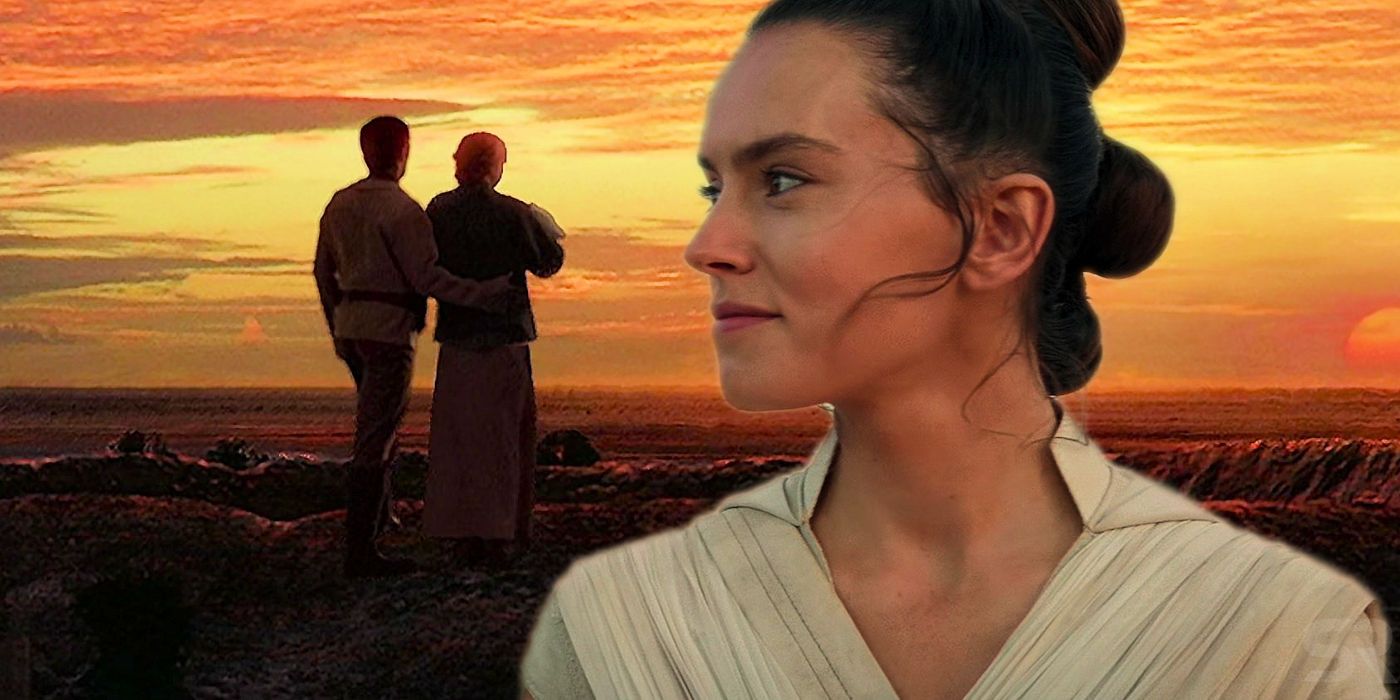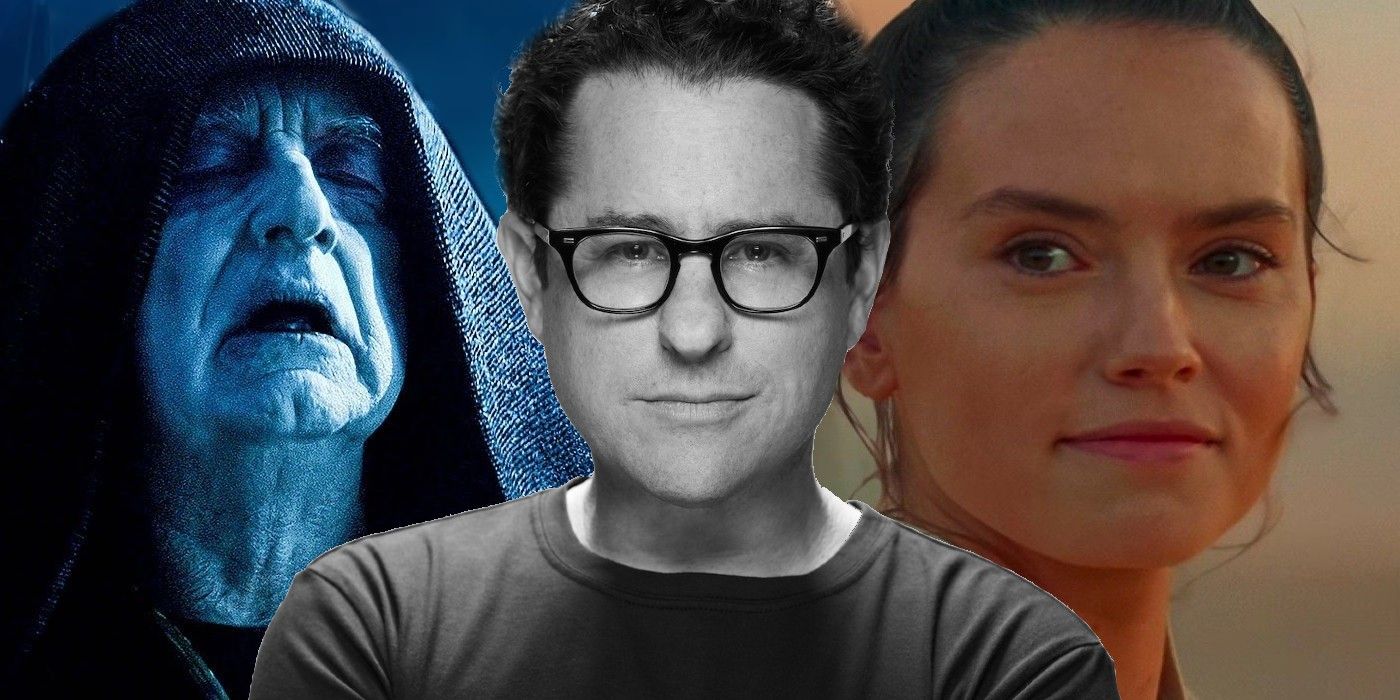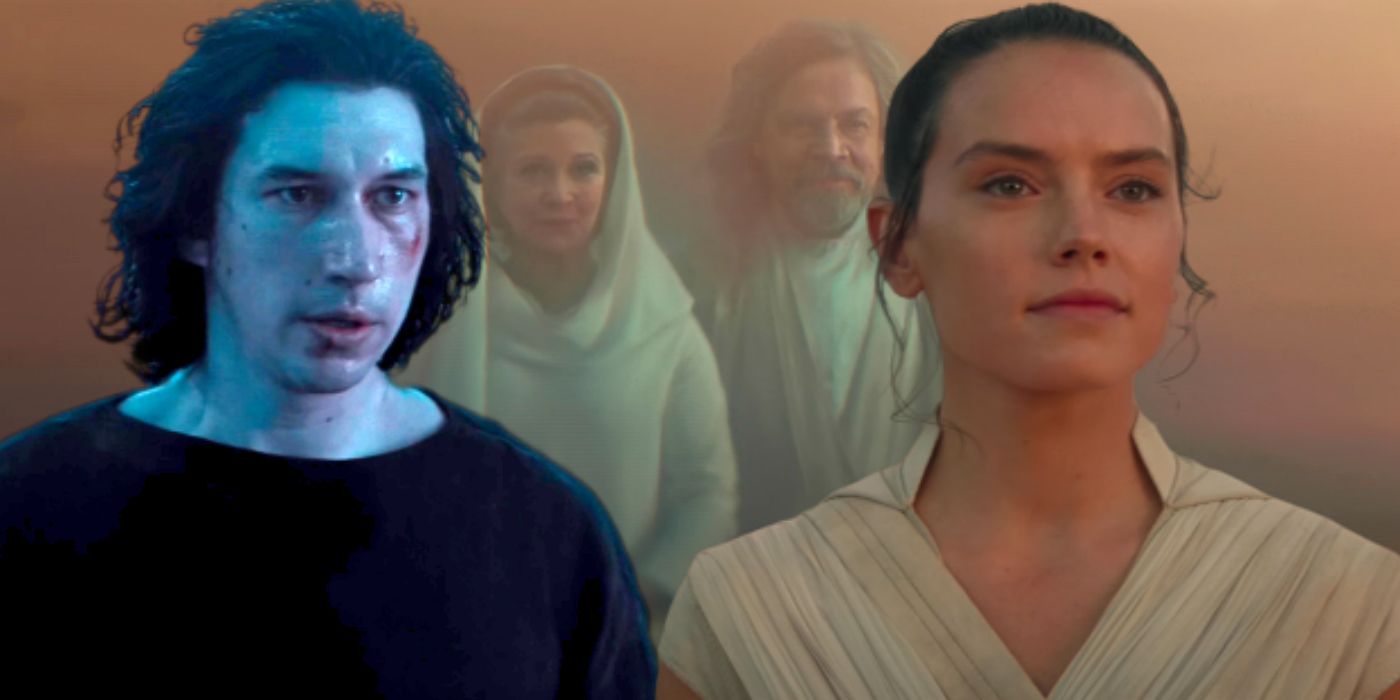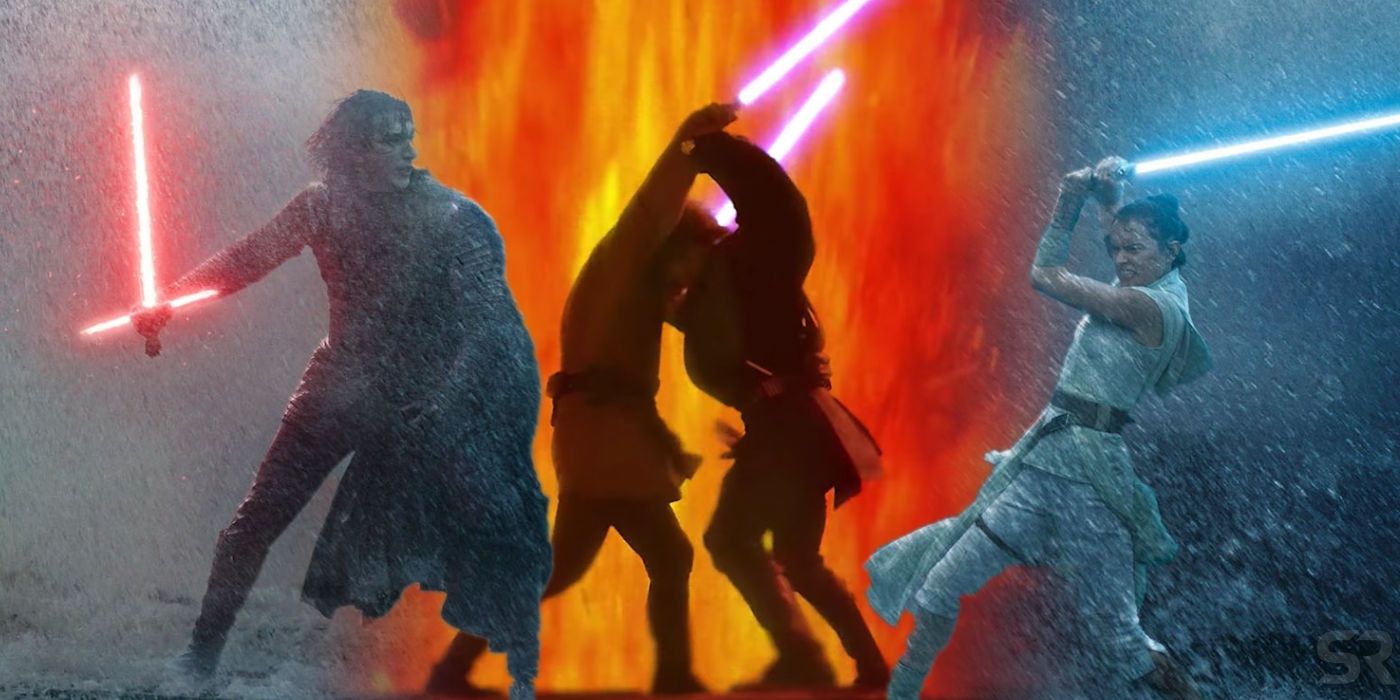Star Wars: The Rise of Skywalker gave Disney's sequel trilogy a worse ending than the prequels had with George Lucas at the helm. In 2015, a new era of Star Wars stories began under Disney with J.J. Abrams' Star Wars: The Force Awakens. It kicked off a new batch of movies set after the events of the original trilogy. Unfortunately, what was supposed to be another opportunity to come up with a better ending than the one fans got in Star Wars: Episode III - Revenge of the Sith was ultimately a let-down.
While the Star Wars prequels tackled events before Luke Skywalker's (Mark Hamill) time, there was an idea that it would be the final chapter of Lucas' space epic. The films revealed the origins of Anakin Skywalker as well as his fall to the dark side and Darth Vader transformation. With those lingering questions from the original trilogy answered, it felt like Star Wars was truly ending, but as fans now know, that wasn't the case.
Disney and Lucasfilm's new trilogy reunited fans with Star Wars legacy characters such as Luke, Leia Organa (Carrie Fisher), and Han Solo (Harrison Ford), but it also introduced a string of new key players. That includes scavenger Rey (Daisy Ridley), former Stormtrooper-turned-Resistance ally Finn (John Boyega), hotshot pilot Poe Dameron (Oscar Isaac), and First Order leader Kylo Ren (Adam Driver). After The Force Awakens, their stories continued in Rian Johnson's Star Wars: The Last Jedi, leading to the final installment of the sequel trilogy and the Skywalker saga as a whole in The Rise of Skywalker. Unfortunately, it was met with a lot of criticism, making it a worse ending than Revenge of the Sith.
The Rise of Skywalker's Ending Wasn't Planned Out
The Star Wars sequels' glaring issues stem from the fact that The Rise of Skywalker wasn't planned. As part of a trilogy, it was supposed to complete the story that The Force Awakens started and The Last Jedi continued. However, that wasn't what happened as the film came up with more new questions than answering existing ones. Abrams and co-writer Chris Terrio introduced a lot of new elements when The Rise of Skywalker was supposed to address lingering issues from previous movies.
Lucasfilm took a more relaxed approach when it came to the sequel trilogy. It was not pre-planned; instead, the studio decided to give each filmmaker free reign with what to do with their respective films without any narrative guidelines or specific end goal. This obviously made it difficult to craft seamless transitions between episodes, especially when different directors handled succeeding movies, like in the case of The Last Jedi and The Rise of Skywalker. For the most part, the Abrams-directed movie disregarded what was established in its preceding installment, and worse, even directly contradicted some of it.
A prime example of this is the handling of Rey's lineage. The Rise of Skywalker revealed the scavenger to be the granddaughter of Emperor Palpatine (Ian McDiarmid) and eventually, an adopted Skywalker despite the 2017 film saying that she is a nobody. Johnson's creative decision was a refreshing choice for Star Wars, which is known for relating most of its primary characters with each other. Rey not being part of any prominent families from the franchise meant the universe was opening up to new players who would ultimately help sustain it in the long run. Granted, the idea of Rey being a Skywalker was hatched as early as 2014, it still doesn't make sense for The Rise of Skywalker to oppose what was established in Last Jedi when it was supposed to tell one story.
The Rise of Skywalker's Ending Is A Disappointment
Given it was the final Skywalker movie, fans expected The Rise of Skywalker to have a satisfying ending to the nine-film saga. There was immense pressure for it to deliver a pleasing conclusion given the legacy and prominence of the lore. It didn't help that it also needed to work around the sudden death of Carrie Fisher, whose character, Leia Organa, was supposed to be a focal point of the film. Admittedly, a lot of the narrative decisions made in The Rise of Skywalker were also in an effort to address the backlash to The Last Jedi. Unfortunately, Lucasfilm cracked under pressure, and instead of sticking the landing, what they came up with was an incoherent story that didn't feel like the ending to one of the most iconic media franchises ever.
What's interesting is, The Rise of Skywalker incorporated a lot of fan-service in an effort to please everyone. Lando Calrissian and Emperor Palpatine's both returned; Han Solo and Luke Skywalker had cameos; and even the final battle saw countless ships from other Star Wars properties appear, which were meant to give fans something familiar, hoping that they would resonate with them. While it did evoke a sense of nostalgia, there's not much more to it than that.
Even the characters' endings felt unearned and lacking. Kylo Ren's redemption was rushed; Adam Driver barely had any talking lines after his character's decision to help Rey against Palpatine. Poe didn't have any character development despite The Last Jedi setting him up to be the next leader of the Resistance; the same can be said with Finn, making his nifty origin as a former Stormtrooper ultimately go to waste. Finally, Rey, who could've been one of the most unique characters in Star Wars had she been entirely unconnected from anyone from the franchise, was reduced to Palpatine's granddaughter and eventually, an adopted Skywalker.
Revenge of the Sith Gave The Prequels A Much Better Ending
Fans were excited when the idea of the Star Wars prequel trilogy first came about. At that time, it had been almost two decades since Return of the Jedi released, and the public had been starved for more content from the popular space franchise. Regrettably, the movies didn't live up to the standards set by the original films. They were criticized for their reliance on CGI, plus they had cringe-worthy dialogue and lackluster chemistry between two of the leads - Hayden Christensen's Anakin Skywalker and Natalie Portman's Padmé Amidala. Because of this, the prequel trilogy had been ridiculed for years, with some people even denouncing them.
In the last few years, however, the public has started to come around the films - some even remembering them more fondly. People have started to appreciate how it enriched the lore in various ways, making the Star Wars more dynamic and interesting. Amidst the bad execution of the story, the fact of the matter is, the prequel movies tell one coherent narrative, with a clear through-line between movies - this is something sorely lacking in the sequel trilogy. As it progressed, so did the quality of its installments, with Revenge of the Sith hailed as the best during that era. Compared to Rise of Skywalker, the 2005 movie also functioned as a better ending for the Skywalker saga. It directly connected to the events of the original Star Wars movie, but also clarified a lot of lingering questions people had about the origins of Darth Vader - something that was an unanswered mystery even after Return of the Jedi.
-
It's upsetting to think that Disney and Lucasfilm wasted the opportunity to finish Star Wars' story in a more satisfying way than the prequels did. Instead, Star Wars: The Rise of Skywalker came up with a finale that's hollow, truncated, and unsatisfying that it doesn't feel like an ending at all, but rather a big set-up for something else.




